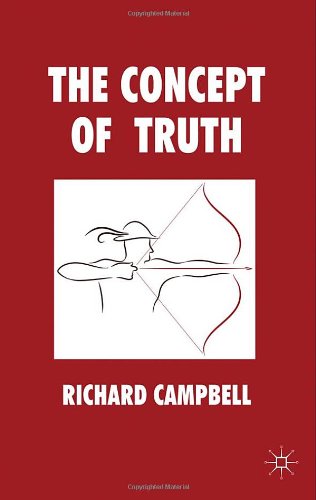

Most ebook files are in PDF format, so you can easily read them using various software such as Foxit Reader or directly on the Google Chrome browser.
Some ebook files are released by publishers in other formats such as .awz, .mobi, .epub, .fb2, etc. You may need to install specific software to read these formats on mobile/PC, such as Calibre.
Please read the tutorial at this link: https://ebookbell.com/faq
We offer FREE conversion to the popular formats you request; however, this may take some time. Therefore, right after payment, please email us, and we will try to provide the service as quickly as possible.
For some exceptional file formats or broken links (if any), please refrain from opening any disputes. Instead, email us first, and we will try to assist within a maximum of 6 hours.
EbookBell Team

4.1
90 reviews
ISBN 10: 1349334243
ISBN 13: 9781349334247
Author: R Campbell
This book addresses the contemporary disillusion with truth, manifest in sceptical relativism. Contending that all contemporary theories of truth are too narrow, it argues for a novel conception of truth, by showing how error is implicated in the actions of all living things; and by analyzing uses of 'true' in non-linguistic contexts.
1 Introduction: Truth in Trouble
1.1 The trouble with truth
1.2 The undermining of truth
1.3 The rise of relativism
1.4 Confronting the challenge
2 The Linguistic Conception of Truth
2.1 Conceptions and theories of truth
2.2 Different conceptions of truth
2.3 The linguistic conception
2.4 Rendering truths explicit
2.5 The ‘truth- values’ of linguistic items
2.6 The relation of agreement
2.7 Minimalist and disquotation theories
3 The Functions Truth Serves
3.1 Desiderata for truth-theories
3.2 The relevance of the desiderata
3.3 The point of the predicate “true”
3.4 The opposition between truth and falsity
3.5 Norms and facts
3.6 Pointers to the primary locus of truth
4 Truth in Action
4.1 Self-maintenance
4.2 Autonomous life
4.3 Functions and normativity
4.4 The emergence of goal-seeking
4.5 The emergence of error
4.6 Minimal action
4.6.1 Goal-directedness
4.6.2 The possibility of error
4.6.3 Behaving as a functional whole
4.7 Self-directed and reflective action
4.8 The irreducibility of actions
4.9 The actions of bacteria
4.10 The grounding of truth
5 Acting Truly
5.1 Truth as the agreement of an object with its concept
5.2 The normativity of truth
5.3 Being genuine and being faithful
5.4 Consistency in action
5.5 The historicity of human being
5.6 The temporality of truth
5.7 Acting faithfully: Objectivity and openness
6 The Genesis of Representations
6.1 Representation as correspondence
6.2 The interactive model of representation
6.3 The term “representation”
6.4 Detecting misrepresentations
6.5 The biosemantic model
6.6 Representations in human consciousness
6.7 Representing objects
7 Acts of Assertion
7.1 Assertions as speech-acts
7.2 Identifying assertions
7.3 The function of linguistic representations
7.4 Simple acts of assertion – referring
7.5 Simple acts of assertion – predicating
7.6 Simple acts of assertion – communicating
7.7 Complex assertions
8 The Truth of Statements
8.1 Understanding and interpretation
8.2 Interpretation and description
8.3 Ascribing truth to statements
8.4 Evaluating the T- schemata
8.5 Appropriateness and success
8.6 False statements
9 The Challenge ofSceptical Relativism
9.1 The possibility of truth
9.2 Engaging with the world
9.3 The relativist predisposition
9.4 The presuppositions of relativism
9.5 The human situation
9.6 Relativity and truth
10 Truth as Faithfulness
10.1 Perspectives and faithfulness
10.2 Openness to the truth
10.3 Truth as a value
what are the concept of truth by bacon
the meaning of truth and reconciliation
the meaning of truth and dare
the meaning of absolute truth
the concept of truth cannot be applied to arguments
what's the meaning of truth alone triumphs
Tags: R Campbell, Concept, Truth